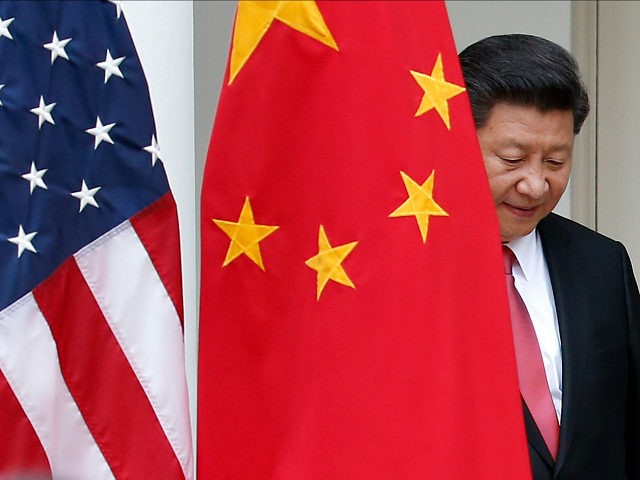The Chinese Foreign Ministry has demanded that President-elect Donald Trump ban a delegation representing Taiwan from his inauguration ceremony, accusing the delegation of attempting to “undermine Sino-U.S. relations.”
Asked about the Taiwanese delegation, to be headed by a former premier, Chinese Foreign Ministry spokeswoman Hua Chunying responded that “our position is very clear.” “China opposes any moves by the Taiwan authority for whatever excuses to send people to the U.S. to conduct activities that will disturb or undermine Sino-U.S. relations,” she told reporters. “We once again urge relevant parties in the U.S. to allow no delegation sent by the Taiwan authority to attend the inauguration ceremony of the president, and not to have any official contact with Taiwan.”
Hua added that the Chinese government had relayed this message to the Trump transition team but did not elaborate on whether they were receptive to the Chinese demand.
A group of representatives of the government of the Republic of China — including former premier Yu Shyi-kun and members of both the ruling, anti-China Democratic Progressive Party (DPP) and the more China-friendly Kuomintang — are scheduled to attend Trump’s inauguration on Friday. Taiwan issued a statement asserting that their delegation is intended to “express the importance our government and people place on close friendly bilateral relations.”
The United States does not recognize the Republic of China, the official name of sovereign Taiwan, and does not have formal diplomatic relations with Taiwan.
The President-elect has threatened to change this, however, referring to the “One China” policy, which denies Taiwan its sovereignty, as negotiable should China continue to threaten the U.S. economy. In a particularly grating move to the Communist Party in Beijing, Trump accepted a phone call from Taiwan’s president, Tsai Ing-wen, following his election to the highest political office in the United States.
Trump advisers have publicly suggested that recognizing Taiwan and expanding military cooperation with the island may be possible given China’s growing colonization of the international waters of the South China Sea. This week, for example, former U.S. ambassador to the United Nations John Bolton suggested that the United States could “enhance its East Asia military posture by increasing U.S. military sales to Taiwan and by again stationing military personnel and assets there.”
These public overtures to Taiwan appear to have emboldened at least some anti-communist resistance under Beijing’s rule. In a move that infuriated Chinese state media, acclaimed anti-communist Hong Kong activist Joshua Wong visited his counterparts in Taiwan this week, attempting to build a bridge between the two separatist movements.
The incoming administration’s tough talk on China, and the response from anti-communist leaders in the region, has not only triggered a stern pushback from official Communist Party media outlets but threatened the stability of the Chinese currency, the yuan. “The possible outbreak of a trade war between the world’s two largest economies, and retaliation from China including RMB depreciation, will cast a shadow over risk sentiment and put the [yuan] under pressure,” Ken Cheung, Asian FX strategist for Mizuho Bank, told the South China Morning Post this week. He added that “all eyes are on Trump’s inauguration speech this Friday” in the investment community.
Chinese state media has repeatedly attacked Trump, warning that China will “take revenge” should Trump impose tariffs on Chinese imports or otherwise champion policies that benefit American businesses at the expense of China.
“The arrogant Trump team has underestimated China’s ability to retaliate. China is a major buyer of American cotton, wheat, beans and Boeing aircraft,” the state mouthpiece Global Times said in an editorial this week. “Chinese society has more capability to bear the losses than US society. It is naïve for the Trump team to believe that they won’t bear any consequences in a trade war.”
The Global Times threatens war with the United States on a semi-regular basis.

COMMENTS
Please let us know if you're having issues with commenting.